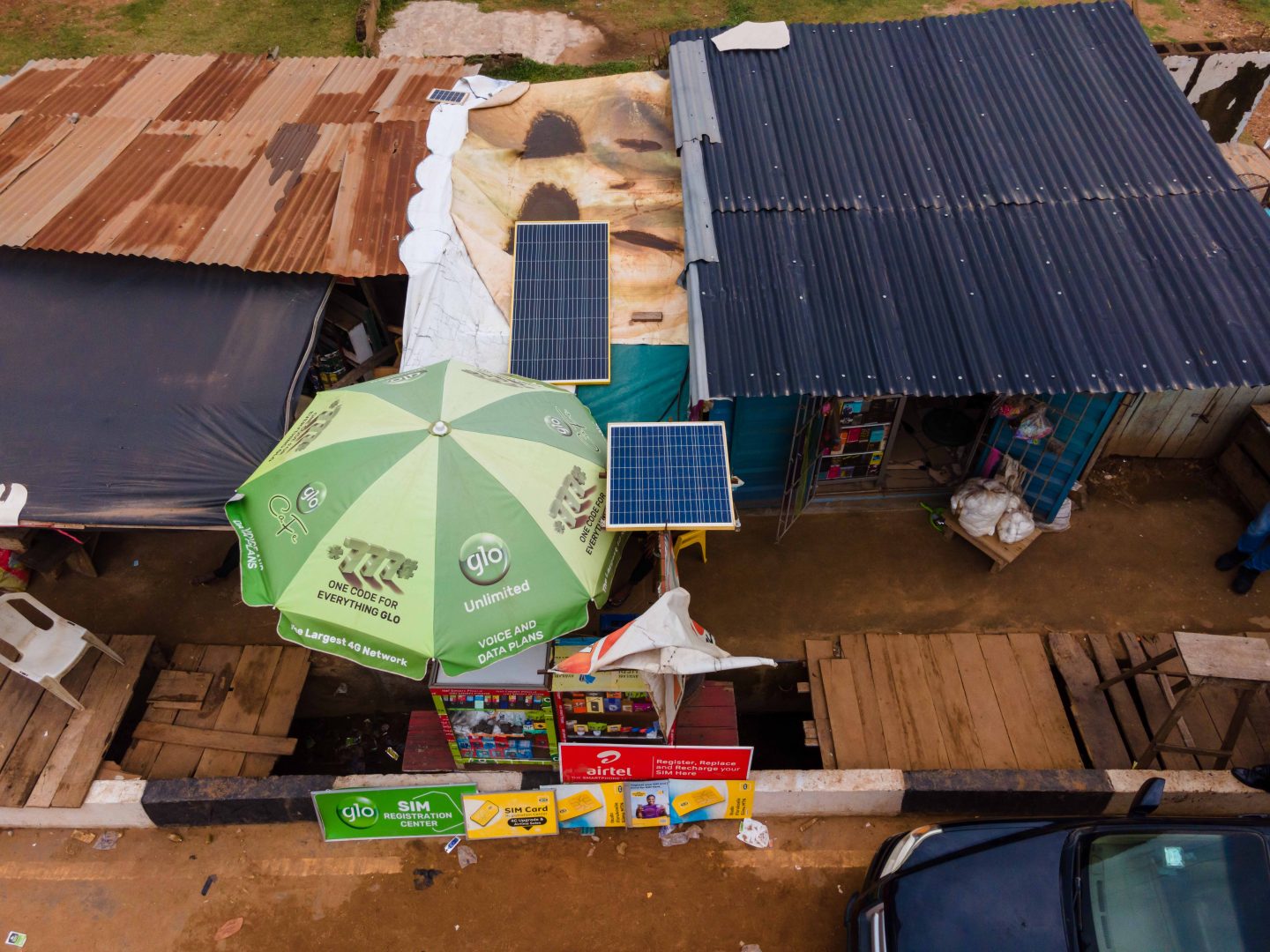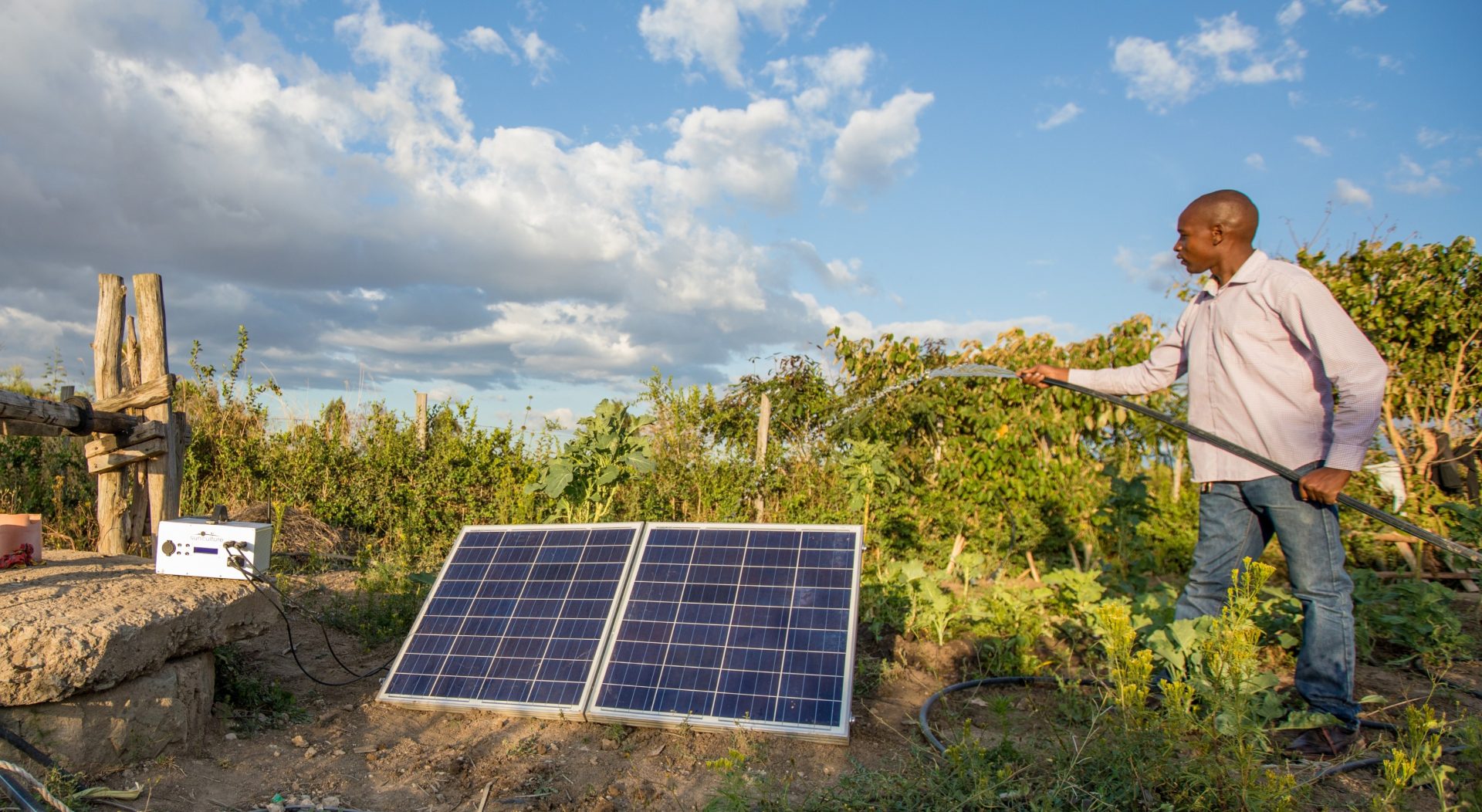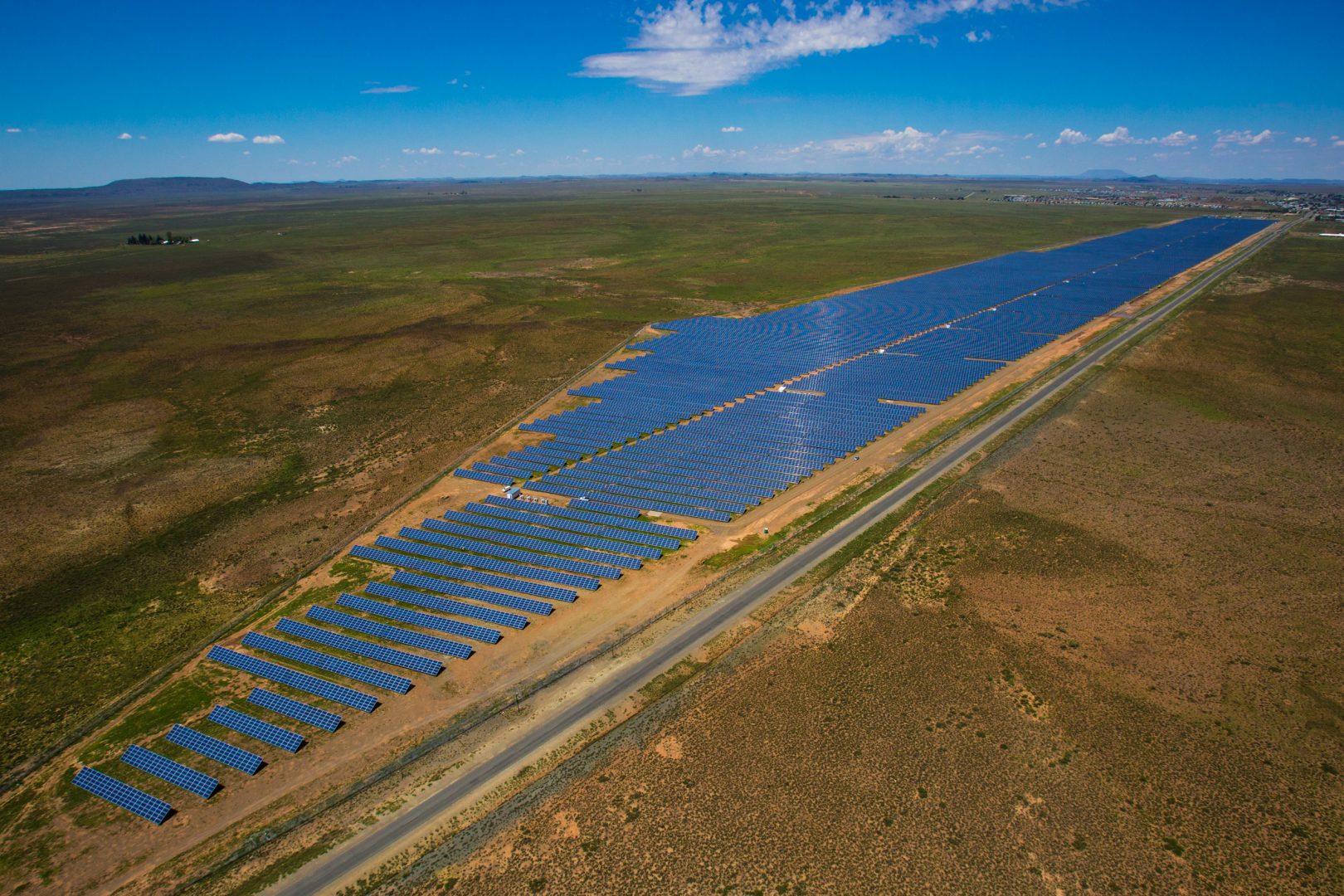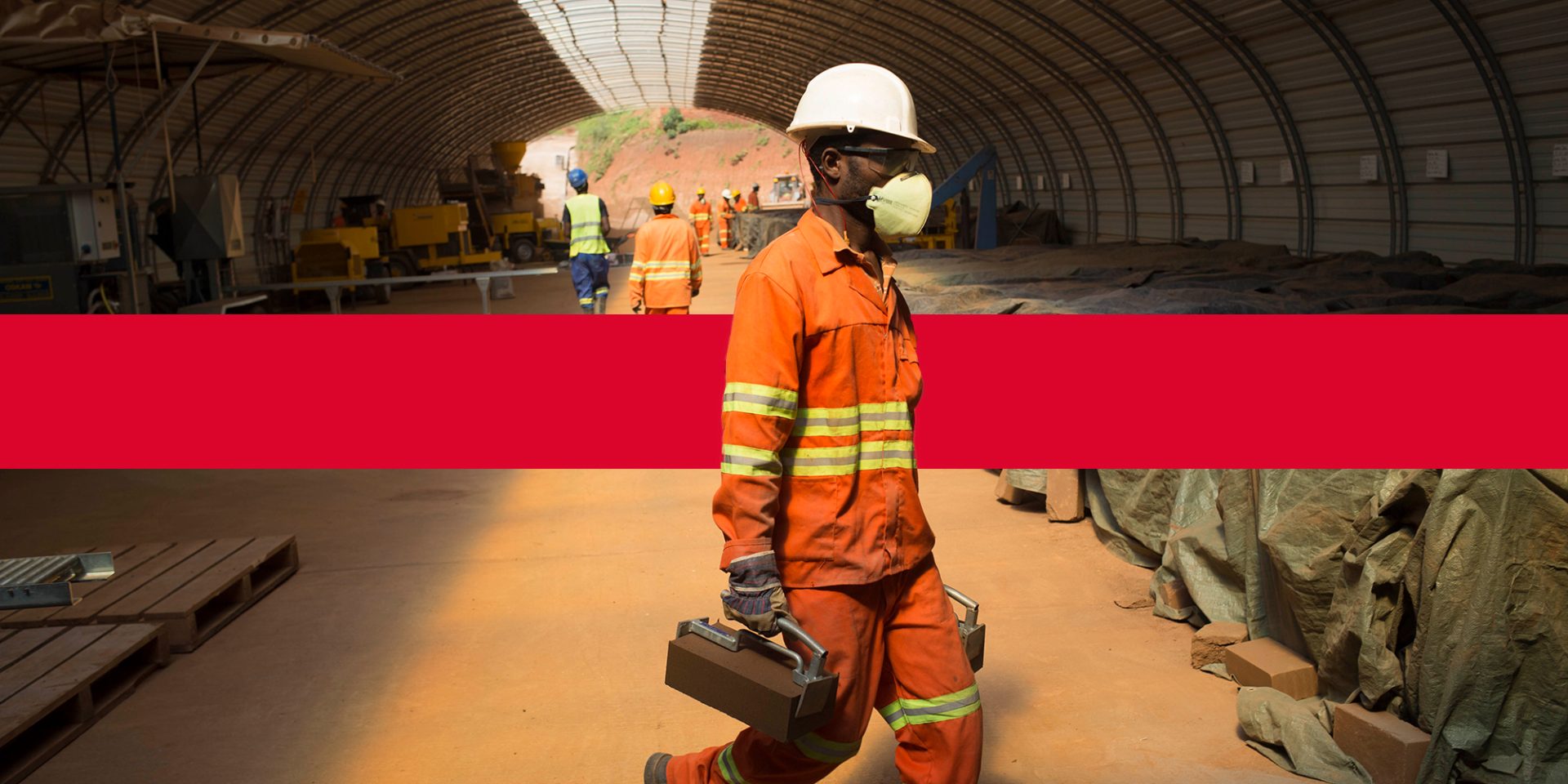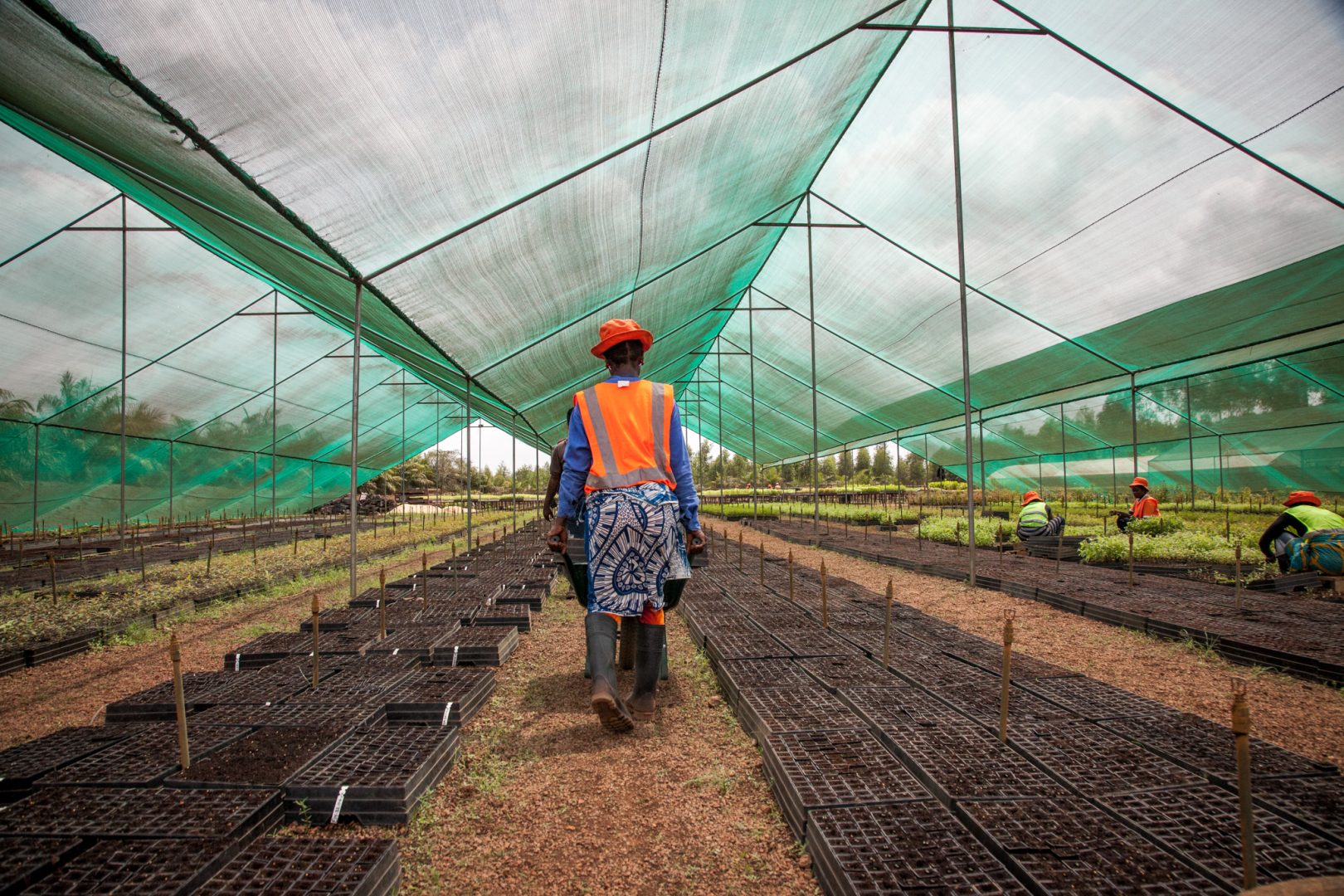Introduction
This report is also available as a PDF. You can download it here.
According to the World Bank, climate change has the power to push 100 million people back into poverty in just over ten years, and it will hit countries in Africa and South Asia the hardest.
Countries in these regions are the most vulnerable to climate change, while being among the least responsible for it. In Africa in 2019, for example, nations were already spending around 5 per cent of their GDP on climate adaptation and mitigation measures. With the impact of the coronavirus pandemic holding back growth and climate change becoming more severe, Vera Songwe, Executive Secretary for the UN’s Commission for Africa, said that this situation is likely to get worse: “It is expected that, in the future, countries [in Africa] will be spending about 15 per cent of GDP to respond to climate crises.”
Meanwhile, in Asia, extreme weather is also having a significant impact on economies. McKinsey estimates that temperatures in India, Bangladesh and Pakistan are projected to rise by 2 to 4°C by 2050. And Cyclone Amphan, which badly affected India last year, caused an estimated $13 billion worth of damage.
These challenges present a significant financial risk to businesses operating in these countries and, more broadly, threaten achieving the Sustainable Development Goals. All nations where we invest have committed to the terms of the Paris Agreement, to limit global warming to well below 2°C and pursue efforts to limit it to 1.5°C. So, our focus as an impact investor in these markets is to support the private sector to find the solutions needed for a just transition to net zero and resilient economies by 2050.
There are significant opportunities for green economic transformation in all sectors. The IFC, for example, estimates that investments in green buildings could reach $1.5 trillion in South Asia by 2030 and, similarly, electric vehicles can create a $950 billion opportunity in the region. In Africa, in 2020, the off-grid solar market alone – companies that provide solar home systems on a pay-as-you-go basis – was estimated to be worth $24 billion.
As an investor in businesses and funds in these countries, we wanted to get a clearer understanding of how private sector leaders in Africa and South Asia see climate change. So, we carried out a survey of senior management at businesses and investment funds in our portfolio operating across these regions. We asked questions on how climate affects their firms today, how it is influencing their future plans, and what they need from international investors – such as CDC – as well as the broader international community, as the countries they work in transition to net zero and resilient economies.
94%
of respondents said that the international community has a duty to support emerging economies respond to climate change
This report provides an overview of those results. The responses reveal the realities of managing a business in challenging environmental conditions and the impact climate change is already having:
- 94 per cent of respondents said that the international community had a duty to support emerging markets to address the impact of climate change
- But only 12 per cent agreed that the international community was doing enough to support emerging markets to address the impact of climate change
- 78 per cent said that all international investment in emerging markets has to support the UN’s Sustainable Development Goals
- 86 per cent said climate change would negatively impact their business over the next decade
- 82 per cent of respondents agreed that businesses that take steps to reduce emissions and vulnerability to physical climate risks will be better off in the long-run
- Nearly half of respondents (48 per cent) said they have experienced an extreme weather event that has significantly affected their company
- Overall, respondents believed the private sector and public sector were equally placed to combat climate change effectively
- Overall, more respondents were optimistic, than pessimistic, that the world can act together to effectively limit the extent of climate change
The survey was carried out by CDC and our partners at Imperial College London. The questions and format of the survey were structured around and inspired by the recommendations of the Task Force on Climate-related Financial Disclosures (TCFD), which provides an international framework to help companies disclose climate-related risks and opportunities.
Kihara Maina, CEO, I&M Bank Kenya shares his views on the impact of climate change
12%
of respondents agreed that the international community was doing enough to support emerging markets to address the impact of climate change
How is climate change affecting businesses in emerging economies?
Responses to our survey highlight the significant impact climate change is already having on companies and funds we invest in. Nearly half of respondents (48 per cent) said they have experienced an extreme weather event that has affected their businesses.
Droughts and heavy rainfall were the two most common issues faced by respondents. The Chief Operating Officer at a large business group in Pakistan that operates in a number of sectors, for example, highlighted the broad impact flooding is having on their businesses: “We are in the process of constructing a wind farm and heavy rainfall has washed away roads which need to be rebuilt now. Urban flooding is also causing absenteeism among staff at our textile factories.”
Meanwhile, the CEO of a financial services business in Kenya also noted the impact that flooding has had. They said it meant that staff couldn’t access their premises, while the productivity of the companies they lend to had fallen as a result.
48%
of respondents said they have experienced an extreme weather event that has affected their businesses
"We are in the process of constructing a wind farm and heavy rainfall has washed away roads which need to be rebuilt now."
How are businesses in emerging economies responding to climate change?
The impact of climate change can also be seen in how business leaders in emerging economies are planning to grow their companies in the years to come.
69 per cent of respondents said that climate risks and opportunities are influencing their company or fund’s strategy and financial planning (figure 1), and 86 per cent of respondents said that climate change will affect their plans to grow their business (or portfolio of businesses) over the next 10 years (figure 1).
On this second point, targeting new markets and introducing new green products were among the most common responses, especially among the investors who responded. This may be because they see opportunities to back businesses that will play a key role in the transition to net zero carbon emissions – such as renewable energy companies – or firms that provide solutions for climate adaptation and resilience.
“We are speaking to clients around the world who are now looking at recycling their water and want to be a part of achieving the Sustainable Development Goals by 2030. That’s the exciting part.”
Prerak, Goel, Co-Founder, Roserve, a water recycling company in Inida
Prerak Goel, Co-Founder of Indian water recycling company, Roserve, shares his views
Figure 1
Participants’ responses to the question: ‘Have climate-related risks and opportunities influenced your company’s or fund’s strategy and/or financial planning?’
Yes
58%
Yes and we have developed a low-carbon transition plan
11%
No
31%
Participants’ responses to the statement: ‘I believe that climate change will impact my plans to grow my business (or investment portfolio) and workforce over the next 10 years’
Strongly agree
33%
Agree
53%
Neither agree nor disagree
11%
Disagree
2%
Strongly disagree
1%
Through this research, we can see how businesses and investment funds are adapting in response to climate change. In our questions, we explored how respondents see two broad categories of climate-related risks: ‘physical’ and ‘transition’ risks. The identification and management of both of these types of risk form a key part of the recommendations from the TCFD.
Physical climate risks include extreme weather events, changing weather patterns, rising mean temperatures and rising sea levels. Transition risks are those associated with a low carbon transition – these include policy changes, reputational impacts, and shifts in market preferences, norms and technology.
Overall, respondents expressed greater concern about physical risks and we found that they are taking more action to address them. 78 per cent, for example, said they are taking action or planning to take action to identify physical climate risks, while 70 per cent said the same for transition risks
(figure 2).
Figure 2
Is your company or fund identifying and assessing transition risks associated with climate change?
Yes
41%
Planning to
29%
No
28%
Stakeholders have asked but we haven't yet
2%
Is your company or fund identifying and assessing physical risks associated with climate change?
Yes
49%
Planning to
29%
No
19%
Stakeholders have asked but we haven't yet
2%
The reason for this difference could be the significant number who have already experienced an extreme weather event that has directly affected their business. Judith Munyurwa, Chief Operating Officer at pan-African investment firm Zebu Investments, supported this view: “I think physical risk is more real because people have experienced it before, they can see it and they can feel it. In terms of the transition risk, we are starting ‘bottom up’ in the developing world because, on the African continent, I think the private sector is taking the lead and trying to do their bit through smaller pockets of ESG activity by themselves. I think in the developed world, it’s a top down approach where the governments are leading.”
When exploring how companies are responding to physical and transition risks, we also noticed a slight disparity between the two. Only 11 per cent of respondents are implementing greenhouse gas (GHG) emissions targets, while 39 per cent are actively reducing vulnerability to physical climate risks (figure 3). This difference may be due to the comparative technical difficulty of setting targets for GHG emissions and the costs the process can bring with it.
“I think physical risk is more real because people have experienced it before, they can see it and they can feel it.”
Judith Munyurwa, Chief Operating Officer, Zebu Investments
Figure 3
Is your company or fund setting GHG emissions targets?
Yes
11%
No
55%
Planning to
35%
Is your company or fund calculating its carbon footprint?
Yes
33%
No
38%
Planning to
29%
Is your company or fund reducing its vulnerability to physical climate risks?
Yes
39%
No
33%
Planning to
27%
What do businesses in emerging economies need to effectively tackle climate change?
Despite being the least responsible for climate change, developing countries are among the most vulnerable to its effects, and it is clear that people leading businesses in these regions want more support.
94 per cent of respondents said that the international community has a duty to support emerging markets in addressing the effects of climate change and only 12 per cent think that enough is being done already. 72 per cent also said that more investment is needed in the countries they operate in, to help businesses transition to net zero carbon emissions and become more resilient to climate shocks. This focus on sustainability is also underlined by the 78 per cent of respondents who agreed that all investment in emerging economies should support the UN Sustainable Development Goals (figure 4).
78%
of respondents said that all international investment in emerging markets has to support the UN’s Sustainable Development Goals.
Figure 4
I believe the international community has a duty to support emerging markets in addressing the effects of climate change
Strongly agree
62%
Agree
32%
Neither agree nor disagree
4%
Disagree
2%
Strongly disagree
0%
I believe that the international community is doing enough to address the effects of climate change
Strongly agree
1%
Agree
11%
Neither agree nor disagree
20%
Disagree
35%
Strongly disagree
33%
I believe that more investment is needed in the country I work in (or invest in) to help businesses transition to net zero carbon emissions and become resilient to climate shocks
Strongly agree
36%
Agree
36%
Neither agree nor disagree
11%
Disagree
9%
Strongly disagree
2%
I believe all international investment in emerging markets has to support the UN's Sustainable Development Goals
Strongly agree
40%
Agree
38%
Neither agree nor disagree
11%
Disagree
9%
Strongly disagree
2%
Is the private sector or the public sector better placed to combat climate change effectively?’
The private sector is better placed
18%
The public sector is better placed
16%
They are equally placed
66%
To provide more context to these results, we asked respondents what specifically international investors such as CDC can do to support businesses. Several responses focused on the importance of training and knowledge sharing: “We would welcome help with designing climate change strategy, knowledge transfer, policy advocacy, training for our portfolio and case studies,” wrote one investment manager based in Nepal.
Technical assistance was another recommendation raised by respondents. The CEO of a financial services business in Pakistan was interested in technical assistance to develop new climate-focused products and for market scoping, while the CFO of a Ugandan electricity company thought technical assistance would help with impact assessments.
The final theme that emerged was the need for investors to back climate-focused funds and companies that target climate resilience. “International investors could allocate specific funding to funds and companies that invest in climate change adaptation and mitigation,” said the director of an investment fund that operates in sub-Saharan Africa. A partner in another investment fund in the region raised the importance of development finance institutions mobilising investment from commercial investors: “They should help capitalise a planet-positive venture fund that is able to take more experimental risks and build demonstration effect to attract more private capital.”
“SMEs in developing countries should not be expected to incur the cost of abiding by global climate change best practice, without some financial
and technical support from developed countries.”Partner, pan-African investment fund
"I think physical risk is more real because people have experienced it before, and they can see it, they can feel it."
Conclusion
Our research shows that businesses in developing countries are already feeling the effects of climate change and that the people leading these businesses want the international community to do more to help them address the issue. This is reflected in the high number of people who believe the international community has a duty to support businesses in emerging markets in addressing climate change (94 per cent) and those who think more investment is needed in their country to help firms transition to net zero and become more resilient (72 per cent) (figure 4).
Although these results provide a stark picture of the challenges that climate change has brought – particularly in terms of extreme weather – there is a degree of optimism among private sector leaders that the issues can be tackled: nearly half of respondents said they were optimistic that the world can act together to effectively limit the extent of climate change, compared with 36 per cent who were pessimistic (figure 5).
49%
of respondents said they were optimistic that the world can act together to effectively limit the extent of climate change
Figure 5
How optimistic are you that the world can act together to effectively limit the extent of climate change?
Very optimistic
12%
Somewhat optimistic
37%
Neither optimistic nor pessimistic
15%
Somewhat pessimistic
30%
Very pessimistic
6%
Participants’ responses to the statement: ‘I believe that businesses in the country (or countries) that I work in that take steps to reduce their carbon emissions and reduce vulnerability to physical climate change risks will be more successful in the long-term’
Strongly agree
35%
Agree
47%
Neither agree nor disagree
12%
Disagree
5%
Strongly disagree
1%
The data highlights a desire to act now in support of the Sustainable Development Goals, and a belief that those businesses that take steps to become more sustainable will also be more successful as a result. 78 per cent of respondents thought that all investment in emerging economies should support the Sustainable Development Goals (figure 4), and 82 per cent agreed that businesses that take steps to reduce emissions and vulnerability to physical climate risks will be better off in the long-run (figure 5).
At CDC, we will be using this data to help inform our decision making when it comes to supporting the businesses we work with on climate change. We will continue to listen carefully to the views of our partners, as we look to play our part in investing for the just transition to net zero and resilient economies.
About this research
We received 84 complete responses to our climate change survey, which ran during July and August 2021. Survey respondents were senior executives working at companies and funds CDC invests in. 61 respondents indicated that their business or fund operates in Africa, while 29 said their business or fund operates in Asia.
The survey was structured around the TCFD’s four pillars: governance, strategy, risk and metrics. Follow-up interviews were conducted via video call with select respondents who indicated they were happy to talk about their responses in greater depth.
All responses to the survey were made anonymously. Where we have published the names of respondents, we have done so with their permission using quotes shared during follow-up interviews.
Our thanks to Josephine Bellman and Dr Mike Tennant at Imperial College London’s Environmental Technology MSc programme for research, data collection and analysis.
